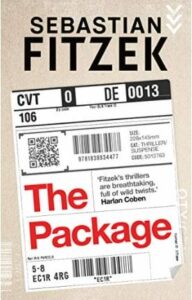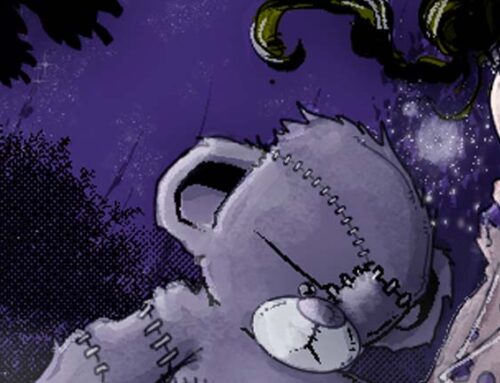The Package is a psychological thriller from Germany’s premier thriller author, Sebastian Fitzek. The book follows Emma, the sole survivor of a serial killer deemed the hairdresser for his fixation on shaving the heads of his victims. There’s only one problem– there’s no definitive proof that Emma was assaulted by the killer (and yes, big content warning here, the book centers on rape, the trauma of assault survivors, and how often claims of assault are doubted), as the hotel room she checked into appears to have never existed, and any evidence of the crime has been thoroughly expunged.
a psychological thriller from Germany’s premier thriller author, Sebastian Fitzek. The book follows Emma, the sole survivor of a serial killer deemed the hairdresser for his fixation on shaving the heads of his victims. There’s only one problem– there’s no definitive proof that Emma was assaulted by the killer (and yes, big content warning here, the book centers on rape, the trauma of assault survivors, and how often claims of assault are doubted), as the hotel room she checked into appears to have never existed, and any evidence of the crime has been thoroughly expunged.
Emma tries to put the pieces of her former life back together, but her trauma has left her nearly agoraphobic. That is, until she’s asked to hold onto a package for a new neighbor whose name she doesn’t recognize, which sets Emma down a spiraling path that may lead her to even darker places.
Let’s start with the good– Fitzek is great at pacing. The Package is written in such a way that you can’t help but burn through it, as it starts fast and never lets up. Fitzek’s writing is very engaging and easy to read, and I would definitely check out more from him if only because I enjoyed the speed of this story and how lean it is relative to the amount of plot that’s going on here.
The problem is that the plot is so utterly bonkers that the book can be a little difficult to take seriously. Without delving too much into spoilers, the book has a fundamental issue in that it’s built on a series of misdirects and red herrings which we know are those almost immediately because of how often Fitzek uses the exact same misdirection formula.
That formula almost always involves a cut back to the wrap-around story in Emma’s counselor’s office, wherein Emma or her doctor say something vaguely ominous or threatening before we have a chapter or section break. Then we return to Emma’s story to find that whatever was foreshadowed was some sort of misdirect– the closest thing I can equate this pattern to is the writing of R.L. Stine but taken to a much darker place.
That alone wouldn’t necessarily be a problem, except that the author is continuously upping the ante in terms of absurdity and extreme coincidences and it feels like he’s trying to one-up his own storytelling. This can be fun at times because the story goes to such strange places that you can’t help but be pulled in, but if you stop and think about what’s going on it gets a little silly, especially the parts directly involving the titular package.
In this way the ending is also a bit of a miss, as tying everything together requires one of the most elaborate plot devices I’ve ever read. The Package definitely goes out with a bang, but it’s one that requires a huge suspension of disbelief which the rest of the story didn’t really facilitate. If you’re a fan of M. Night Shyamalan style twists and turns you’ll probably enjoy this novel, but I found it to be a bit much despite enjoying Fitzek’s writing style.
Rating 6.5 out of 10 Delusions







